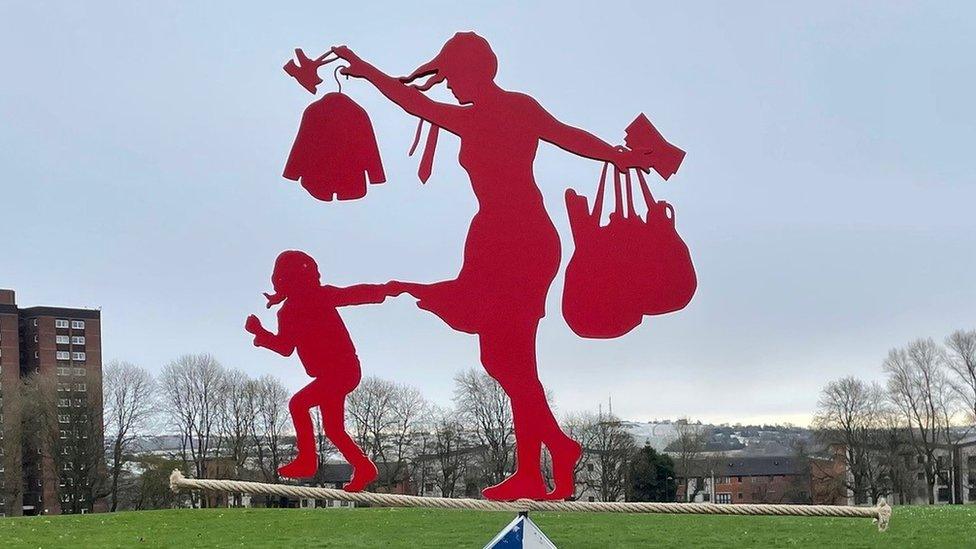Poverty: 'I have to borrow to make sure my kids are covered'
- Published
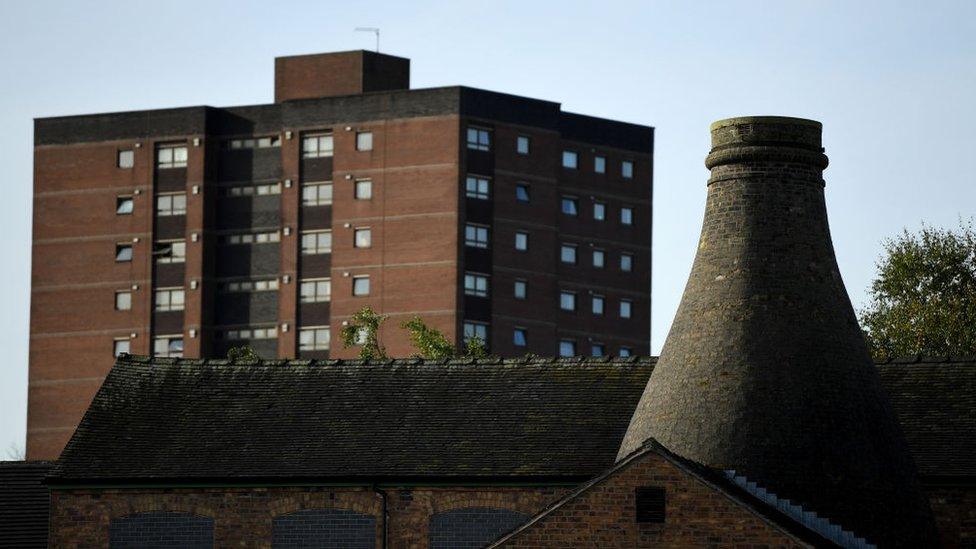
More than a third of children in Stoke-on-Trent are growing up in low-income households
Many families in Stoke-on-Trent say they are facing hardship and debt as they struggle with the rise in the cost of living.
Inflation, as measured by the Consumer Prices Index, hit 5.1% in the 12 months to November, the highest in a decade.
More than a third of children in Stoke-on-Trent are growing up in low-income households and 19% of the local population relies on Universal Credit.
Charities are calling for support to tackle poverty in the city.
Mother-of-two Sophie Mayer said she had been forced to borrow off family members to care for her children and pay gas and electricity bills.
"I'm in debt a lot with my family," she said. "I borrow money off them to make sure my kids are covered, so I get myself in a lot of debt."
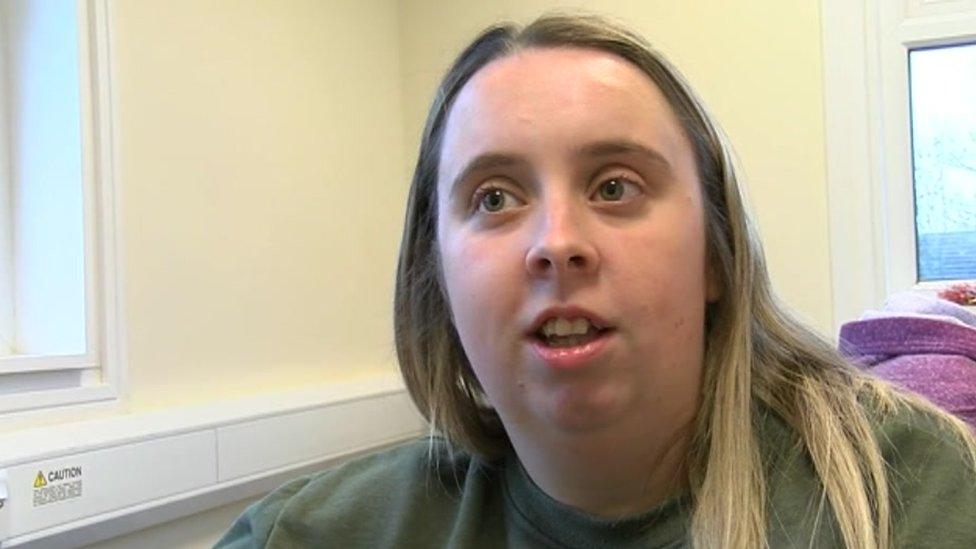
Sophie Mayer said she struggled to make ends meet and relied on charity and her family
Her husband is a factory workers and she cares for their two young children.
She said she "can't afford to take the kids on day trips out and stuff like that".
"At the weekend, I have to go out on a walk with them and make it fun in that way."
High energy bills in particular means Ms Mayer is increasingly reliant on local charities as well as her family.
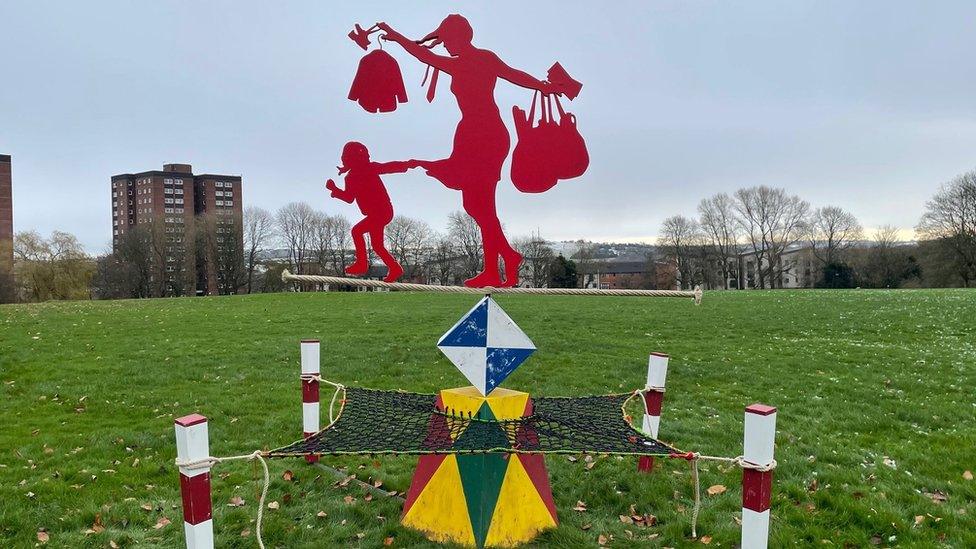
An artwork, titled Tightrope, was unveiled in Stoke-on-Trent in December, drawing attention to poverty
Staffordshire University has recently launched what is thought to be the UK's first degree course to examine community deprivation.
Lecturer Sarah Page said Stoke-on-Trent had "a long history in terms of inequalities and deprivation", particularly since the decline of industry in the city.
Early research estimates that the removal of the £20 Universal Credit uplift during the pandemic is likely to cost the city £30m, she said.
"We're already hearing from our partners that there's increases to food vouchers in food banks and we've got families saying they can't juggle their utility bills at the moment and are having to make difficult decisions about choosing not to eat in order to pay for those bills," Ms Page said.
Families who do not rely on Universal Credit are also struggling, she said, with the local working population "about £750 a month behind the national average in terms of salary".
In removing the uplift, the government said it was always meant to be temporary measure and announced plans that would allow those in work claiming Universal credit to keep more of their earnings.
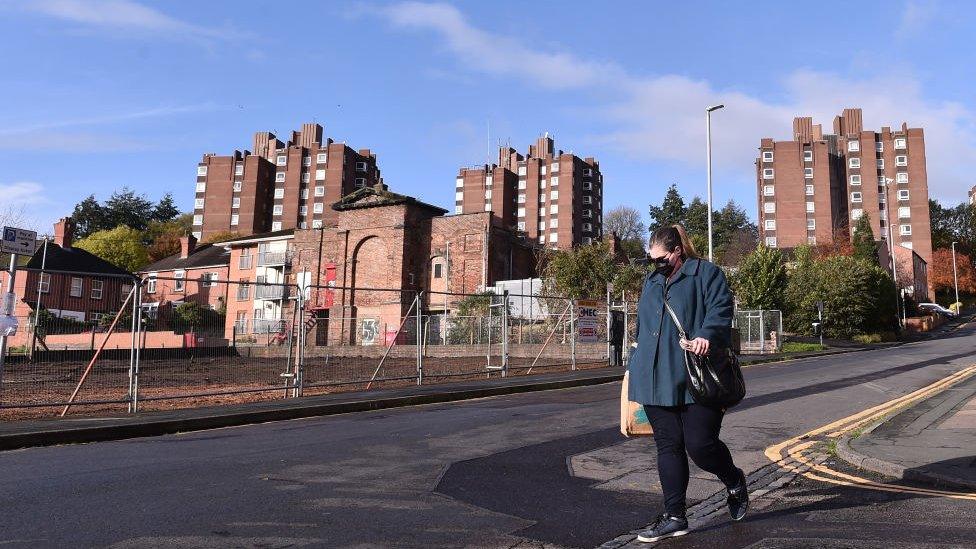
Stoke-on-Trent has a long history of deprivation, particularly since the decline of the ceramic industry
Stoke-on-Trent City Council recently announced plans for job cuts and a council tax rise to increase funding for adult and children's social care, saying supporting the most vulnerable was "our overriding priority". It also announced plans to close three children's centres.
The local authority said it also supported a number of schemes through the Community Investment Fund, such as food banks and grassroots community groups.
However, some charities in the city are struggling to cope and have called for improved planning to join up services.
"Unfortunately as a small charity we can only do as much as we can do," Emma Obhi, from the Whitfield Centre, said.
"It is such a huge problem that all the small charities around the area work together to try and help the individual in their best ability, but we're too small to reach the whole community and there are so many people out there that need so much help."
A Stoke-on-Trent City Council spokesman said the authority knew families had been struggling during the pandemic and it had been pragmatic in offering assistance from the start.
Funding had been released and government grants administered, he said, and partnerships with the voluntary sector also set up.
"We have spent £3.87m distributing 250,000 food vouchers to families in the city and provided £380,000 in grants to foodbanks and community groups for food and essential supplies," he told the BBC.
"This winter we're giving out £200,000 in energy vouchers and energy payments to families experiencing fuel poverty. We have issued £160,000 in discretionary grants to families to cover housing costs, transport, clothing, heating and plumbing repairs and food and other essential items."
A mental health helpline has also been established, taking nearly 60,000 calls since November 2020, the council reports.

Follow BBC West Midlands on Facebook, external, Twitter, external and Instagram, external. Send your story ideas to: newsonline.westmidlands@bbc.co.uk, external
Related topics
- Published4 January 2022
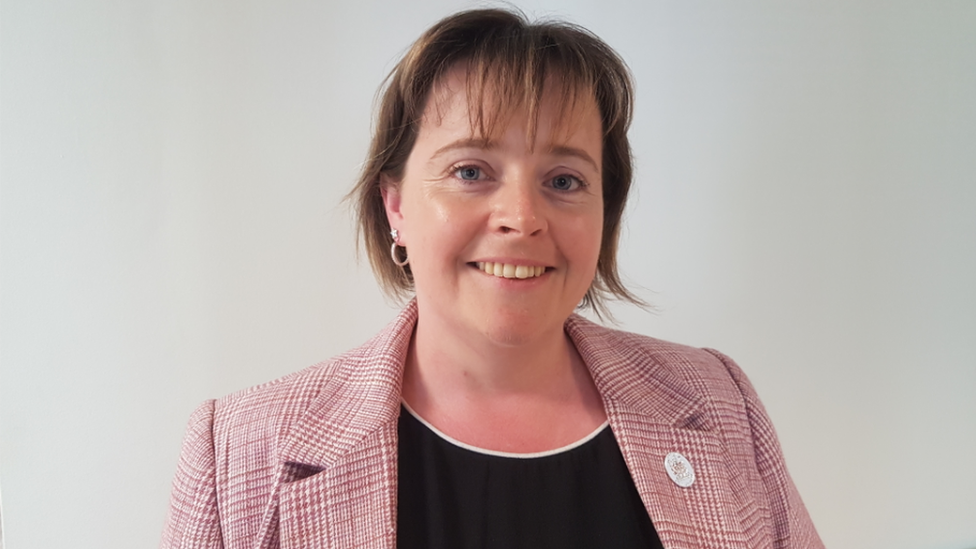
- Published1 December 2021
